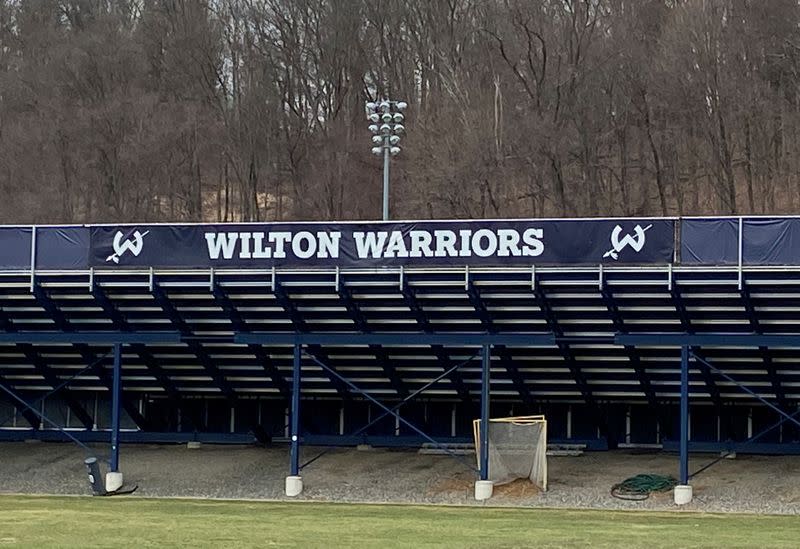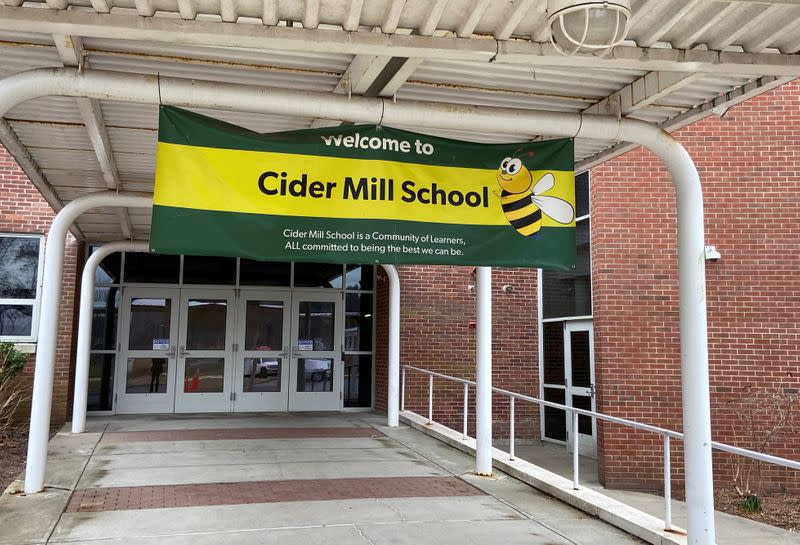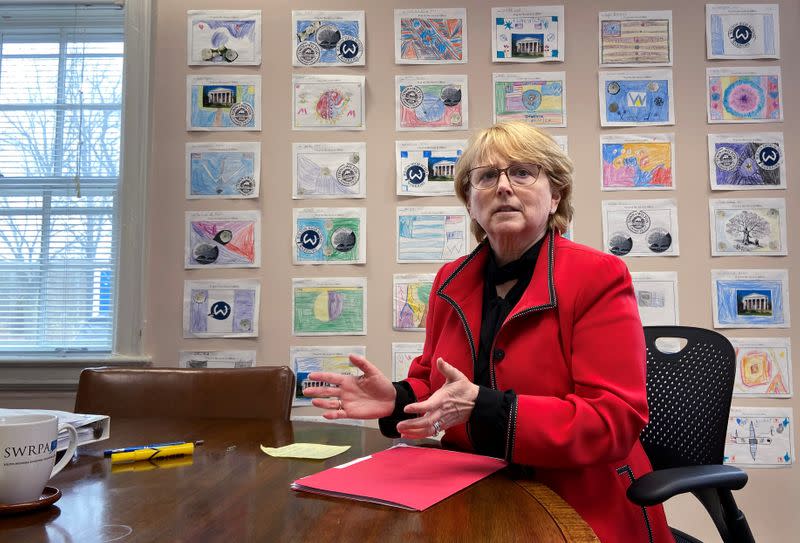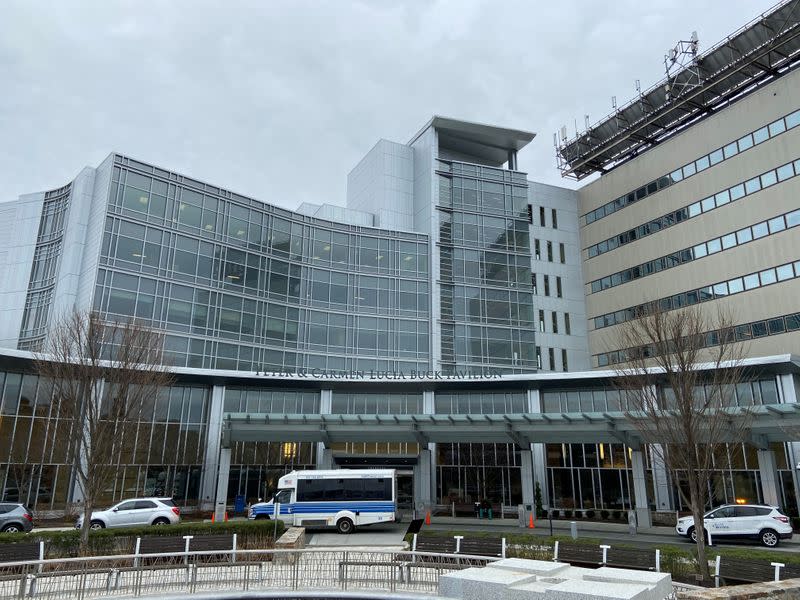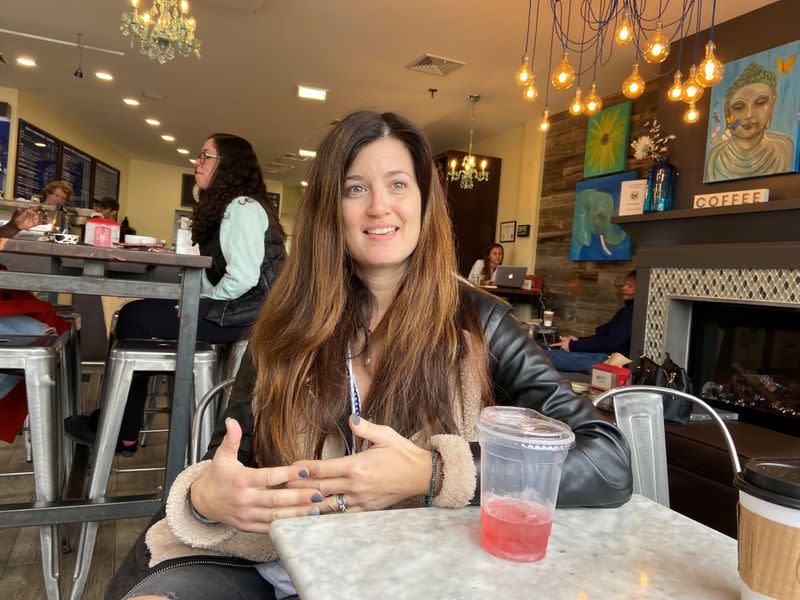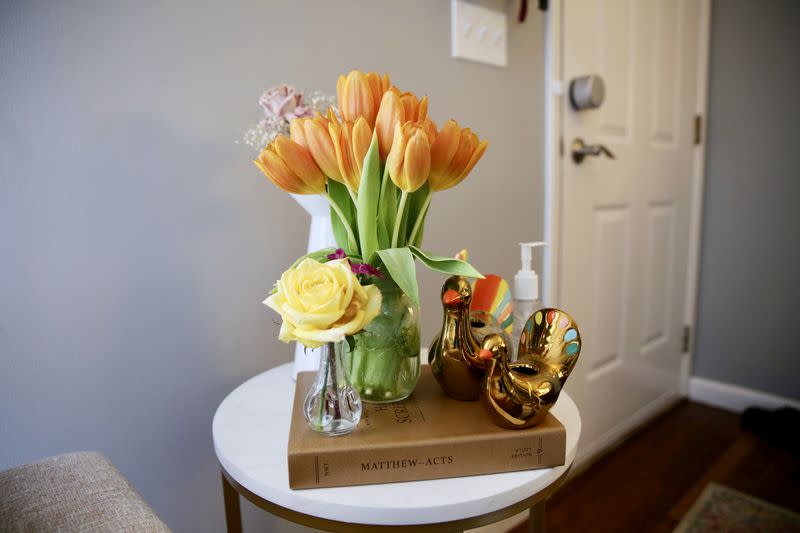Shaken but united, Americans pull together to battle coronavirus
By Nathan Layne
WILTON, Conn (Reuters) - When residents of Wilton, Connecticut, first learned one of their own had contracted coronavirus, they naturally worried about infections spreading across their quiet New England hometown.
But they did more than worry; they also offered their help. Neighbours began dropping off groceries for the patient's wife and their four-month old twin boys. Some pitched in by delivering medication, while others sent flowers to cheer up the household.
"That's classic Wilton," First Selectwoman Lynne Vanderslice said. "There are some advantages to being in a small town because we all know each other and trust each other."
It's not just Wilton. Across the United States, a fast-spreading virus that has infected at least 1,600 Americans, killed at least 47 and upended daily life has also drawn people together in ways emergencies sometimes do.
From celebrities to teachers, from New York to New Mexico, a week in which coronavirus created waves of anxiety, it also gave rise to acts of kindness.
Take Atlanta's close-knit East Atlanta Village. Within an hour of posting on a blog her offer to help the elderly and anyone who was house-bound, Meredith Lipman said she had already heard from about a dozen neighbours willing to pitch in.
"People just want to join in and do the same thing, help me do this," said Lipman, a teacher at a local school for the deaf.
In New York's Brooklyn borough, Jane Trachet, 41, organised a food drive for a soup kitchen and women's shelter where supplies were running low. Soon after posting a plea for donations to a Facebook group, she collected four large Ikea bags, packed with tuna, peanut butter and toiletries.
Author Shea Serrano, a popular Twitter user who frequently engages with his fans on social media to help pay small bills, put out an offer to provide financial help to those impacted by coronavirus.
"Ain't nothing to it — me and my internet friends mostly spend all our time making fun of each other on the internet but sometimes we like to try and put some good energy in the universe — that's why we did it," Serrano told Reuters.
It's a reaction that frequently occurs in times of crisis. Whether the aftermath of a natural disaster, a mass shooting or the attacks of Sept. 11, 2001, small and large acts of generosity often follow tragedy.
Vaile Wright, director of clinical research at the American Psychological Association, says that reaching out to assist others helps many people regain their footing in times of crisis. "One way to counter that feeling of anxiety and lack of control is to engage in acts of kindness," she said.
FILLING THE VOID
Rabbi Jonathan Leener sensed his synagogue members needed a way to congregate while keeping a safe distance from one another. So he organised a virtual "hang" on Facebook before sunset on Friday, when Shabbat, the Jewish Sabbath, begins and the observant refrain from using electric devices.
"We were trying to think creatively about how to fill this huge void," Leener said, referring to the inability to congregate as usual for worship. "Some ritual or gathering to mark this kind of bizarre moment that we are experiencing."
Others have sought to address the problems created by school closings, which have left children who depend on school lunch and without other resources vulnerable.
Using grant money from the state of New Mexico, the Kit Carson Electric Cooperative in Taos County is running broadband internet to low and moderate income families free of charge to allow students to work from home after schools were closed. Local non-profits and schools are seeking donated and borrowed devices for the children.
Resource concerns are generally not top of mind in Wilton, an affluent suburb of New York City. But to the wife of the coronavirus patient, who is in a medically induced coma at a nearby hospital, the community's support has been a lifeline. She and her twins remain quarantined at home.
"They have just come out of the woodwork and gone above and beyond," she said, speaking on condition of anonymity to protect her family's privacy. "I hope to pay it forward to another resident in the future who is of need."
(Reporting by Nathan Layne; Additional reporting by Andrew Hay in Taos, New Mexico, Rich McKay in Atlanta, Brad Brooks in Austin, Texas, and Maria Caspani, Gabriella Borter, Lauren Young and Laila Kearney in New York; Editing by Daniel Wallis)

